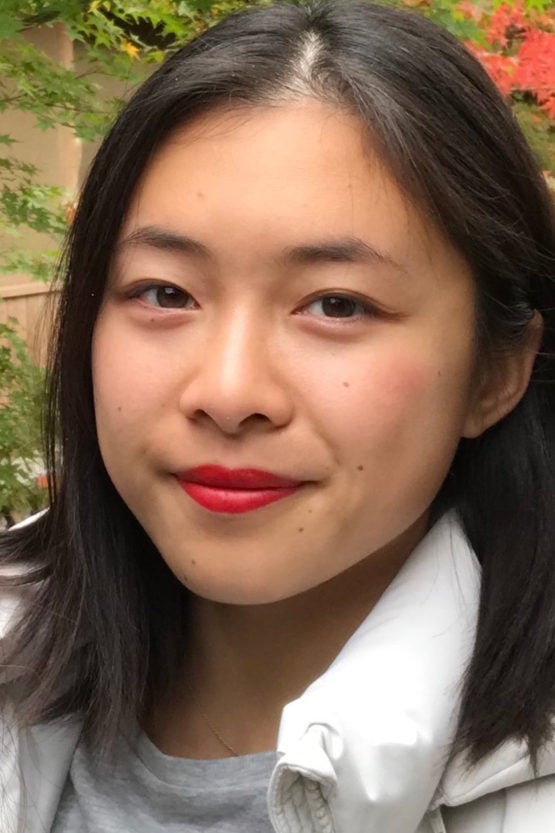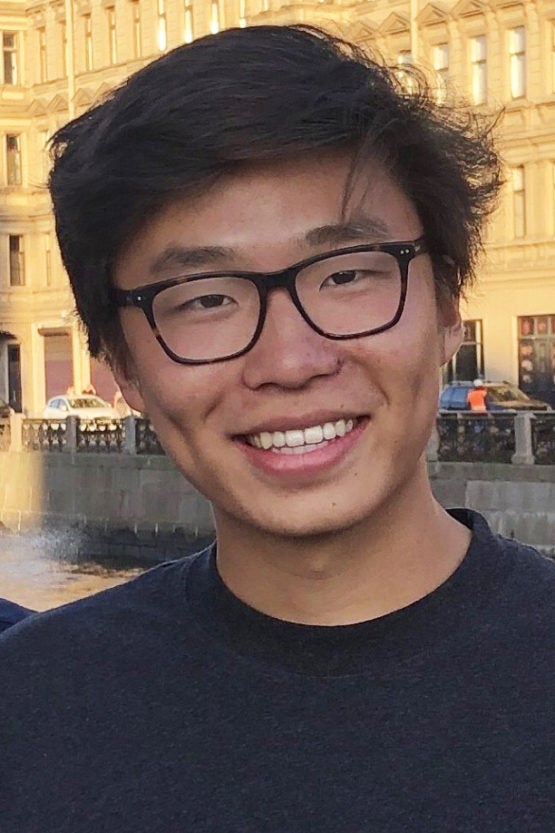Two Stanford seniors named Yenching Scholars
Melodie Grace Liu and Berber Jin are among the 119 young scholars who will pursue graduate degrees in China this fall.
The Yenching Academy of Peking University has announced its sixth cohort of scholars. Among this year’s recipients are Stanford seniors Melodie Grace Liu and Berber Jin.
Liu and Jin are among 119 young scholars from 39 counties and regions selected for the award, which provides one year of graduate study at Peking University. In the fall, they will enroll in the university’s interdisciplinary master’s in China Studies program. Through coursework, independent research and field studies, the scholars will examine China’s past, present and future, with particular emphasis on the country’s development and role in the world.
The Yenching Academy of Peking University was established in 2014. At the core of the program lies its emphasis on interdisciplinarity and the value it assigns to thinking about China; past, present and future – from both Chinese and international perspectives. The academy offers a specially designed, English-taught master’s program.

Melodie Liu, ’20, is the recipient of the Yenching Scholarship. (Image credit: Courtesy Melodie Liu)
Melodie Grace Liu of Cupertino, California, is majoring in history and pursuing the philosophy and arts track. She has an interest in 20th-century Chinese history and literature, particularly as it concerns the second Sino-Japanese war. Much of her studies have focused on war crimes, and she’s currently writing her honors thesis on the U.S. government’s decision-making with regard to the post-WWII justice process in Japan. This research broadened her interests to include contemporary legal issues, which in turn led to an internship at the Indonesian Institute for an Independent Judiciary and her involvement with the Center for Human Rights. She has worked with David Cohen, professor of classics and director of the Center for Human Rights and International Justice, and Ban Wang, the William Haas Professor in Chinese Studies.
“The way in which my studies unfolded has shown me the importance of interdisciplinary thinking moving forward, as I return to my focus on China, which has been the heart of all of my inquiries,” Liu said. “For this reason, I am grateful and excited to be a Yenching scholar.”
Through her graduate work, she intends to refine and diversify her understanding of China by undertaking a combination of political, economic and legal perspectives, while writing a thesis in the literature and culture track. While in China, she intends to build on her Mandarin language abilities and form relationships with other Yenching scholars, as well as faculty at Peking University. After completing her studies at Peking University, Liu hopes to continue studying China or pursue a law degree.
“Whatever the future holds, I would like to continue engaging with fundamental questions about culture, national identity and armed conflict in relation to China, and as such I couldn’t be happier to join the Yenching Academy this fall,” she said.

Berber Jin, ’20, is the recipient of the Yenching Scholarship. (Image credit: Courtesy Berber Jin)
Berber Jin of New York City is majoring in history and minoring in economics. He is writing an honors thesis on the Trinidadian anti-colonialist George Padmore and is interested in 20th-century international and postcolonial history. At Stanford, he has written for both the Stanford Daily and the Stanford Review, and has studied and worked abroad in South Africa and Tanzania.
With an interest in the rise of China and how the country will reshape the world, he said he is excited to witness that development firsthand while living and studying in Beijing. He said that understanding the country and its history is also a personal vocation.
“As a Mandarin speaker and Chinese-American, I feel like I have a responsibility to help promote a more sustainable relationship between the U.S. and China in the coming decades,” Jin said. “Yenching Academy is the perfect place for me to achieve that goal by gaining a better understanding of China on its own terms.”
Jin believes that any country’s vision for its future is shaped by its understanding of its past. That is why history, he said, has to play a central role in policy discussions about China’s growth and influence. He is particularly inspired by writer Peter Hessler, whose work focuses on the historical complexities and human stories that have undergirded China’s rise. Jin aspires to be a foreign correspondent or academic.
“Special thanks go to Professor James Campbell and Professor Kathryn Olivarius for supporting me in the application process and for nurturing my passion for history,” Jin said.
For more information about the scholarship visit Stanford’ Bechtel International Center.
Stanford students interested in overseas scholarships and Stanford faculty interested in nominating students for such awards should contact Diane Murk, manager of the Overseas Resource Center at dmurk@stanford.edu, of the Bechtel International Center.
